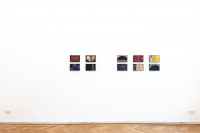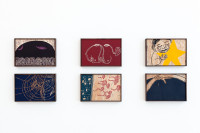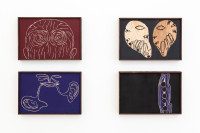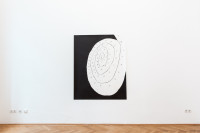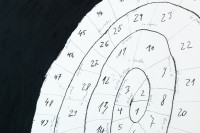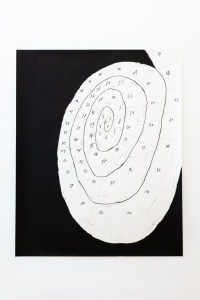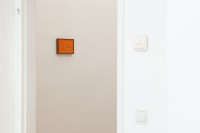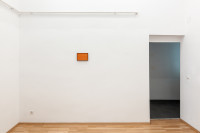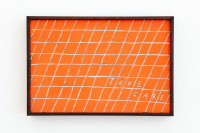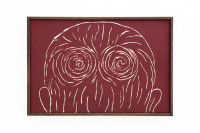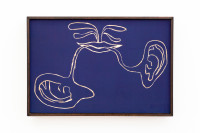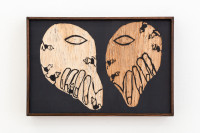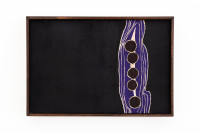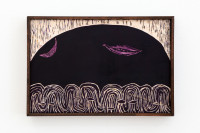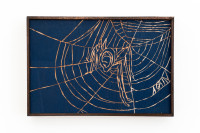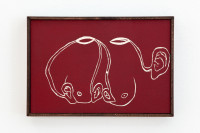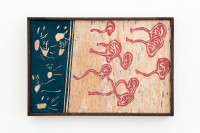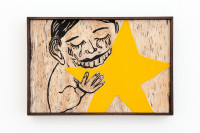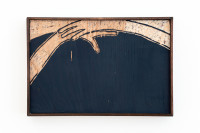Rahel Goetsch
23.05. — 28.07.2024
Take Care
2024
The deliverance of farewells could be considered a speech act intended to absolve oneself of responsibility for the well-being of the person departing. “Take care” is a pithy contraction of “Take care of yourself” – an imperative to reflexivity, reasonably though rarely countered with a question like, “What’s it to you?” Because it sounds nice enough – though what is an investment in divestment really, if not the wilful denial of care’s natural continuity out of sight and out of mind? And who masks their shirking in such well-meaning terms? Perhaps the one who responds, “It’s just a figure of speech,” thus declaring, once and for all, the utterance a platitude, plat like flat; any thoughtful content having been ironed out through protracted overuse.
Imagine the phrase slightly reformulated, liberated from the bind of imposed self-reflexivity, to become instead an invitation: “take care, as liberally as needed, from me, your other.” Or simply, “Take care with you – here’s an ear on a string.” This could be eine Poetik der Floskel, (the German term for an empty statement derives from the Latin flosculus, a small flower). When speaking through flowers is assumed to filter out meaning, the flowers by the bedside should just speak for themselves.
Flowers, yes, but ears also. Peas in a vaginal pod. After mother, the mouths, the spider’s web. Sites of swallowing. Engulfing. Ingesting. Digesting. But nothing fits the grid, in the end.
The equation of care work with art making fails to recognise the general misalignment of temporalities between two activities on forking timelines – ethics and aesthetics. The social turn in art is in many ways a U-turn, a you-turn, that renegues on any aesthetic promise in order to pursue timely, even momentary occurrences of care between artist and viewer. This would-be ethical practice invokes a first and second person: I and you. But this is only ever a punctual arrangement, a “Take care of yourself” kind of bidding. Conversely: making art as a metaphorical statement on care, as Rahel Goetsch does, is a means of cultivating the ability to think contradiction. Art’s autonomy is at odds with both reproduction and thus the social change it is given to desire, and yet this does not preclude the work from having some vital, transformative potential. Precisely because art is not care, just as the metaphor has been trying to tell us. The insistence upon the picture plane, for instance, is a commitment to another mode of framing – timeless, speculative and imaginative. It dissolves the (socially necessary but artistically derailing) dyad of I and you to evoke a third person – here is maybe, just possibly, another way to be.
Such that when I suggest a reformulation of “Take care of yourself” into “Take care from me,” for example, I’m not implicating myself in a (false) promise – I’m not saying that I’ll be there for you. Similarly, the careful articulation of lines and the elaboration of coloured wooden surfaces produces non-literal figurations of care, where the word oscillates subtly between its definition as either noun or verb. These figurations are for the taking: as care-full images, they stay, maintain, repeat, delay, endure, recall and remain. But they also end, they are limited, and these limitations cannot be negotiated as in the ethical mode. In their purely aesthetic capacity, they propel us back into the social world with a general proposition directed towards a better future: “Take care with you – you’re going need it.”
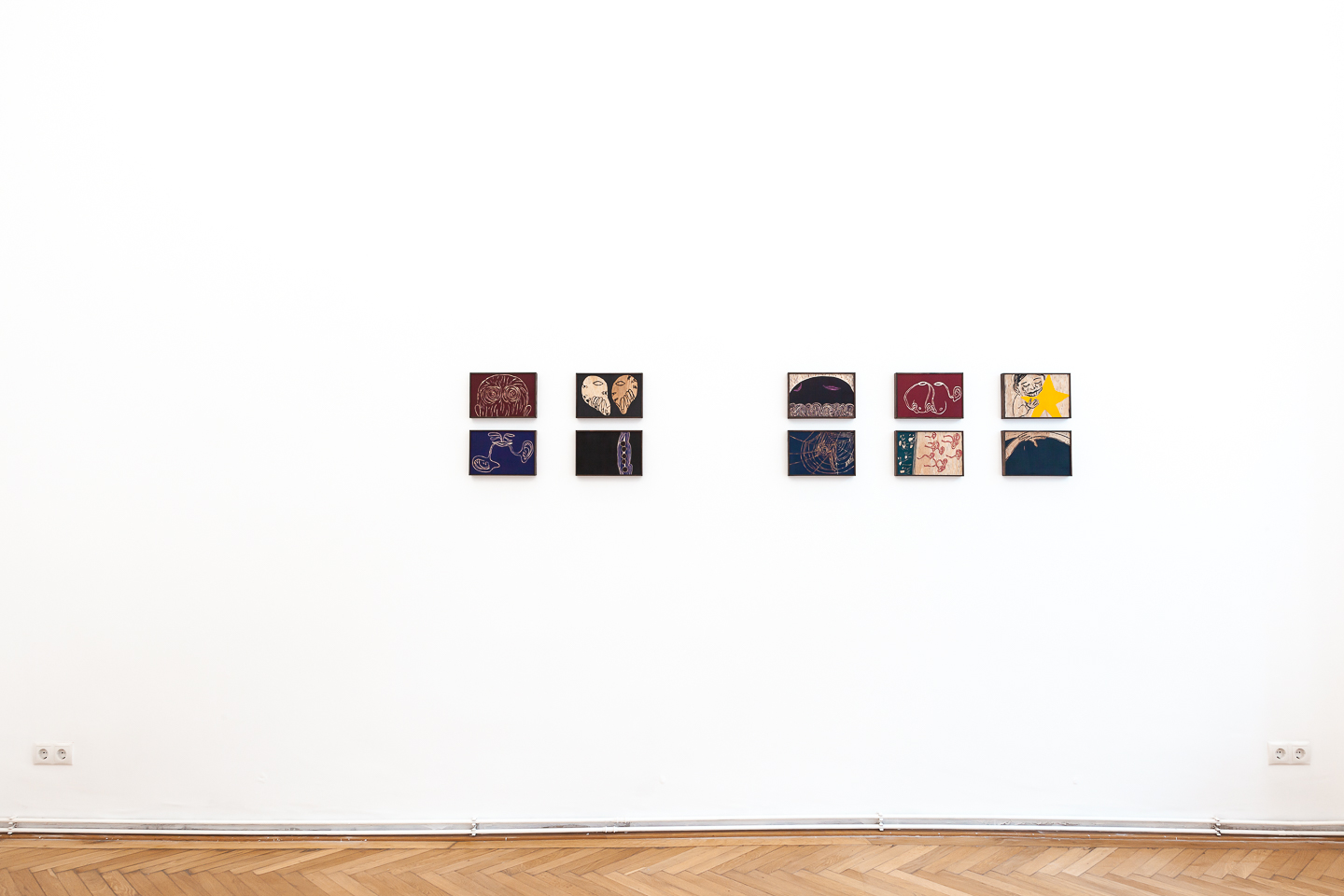
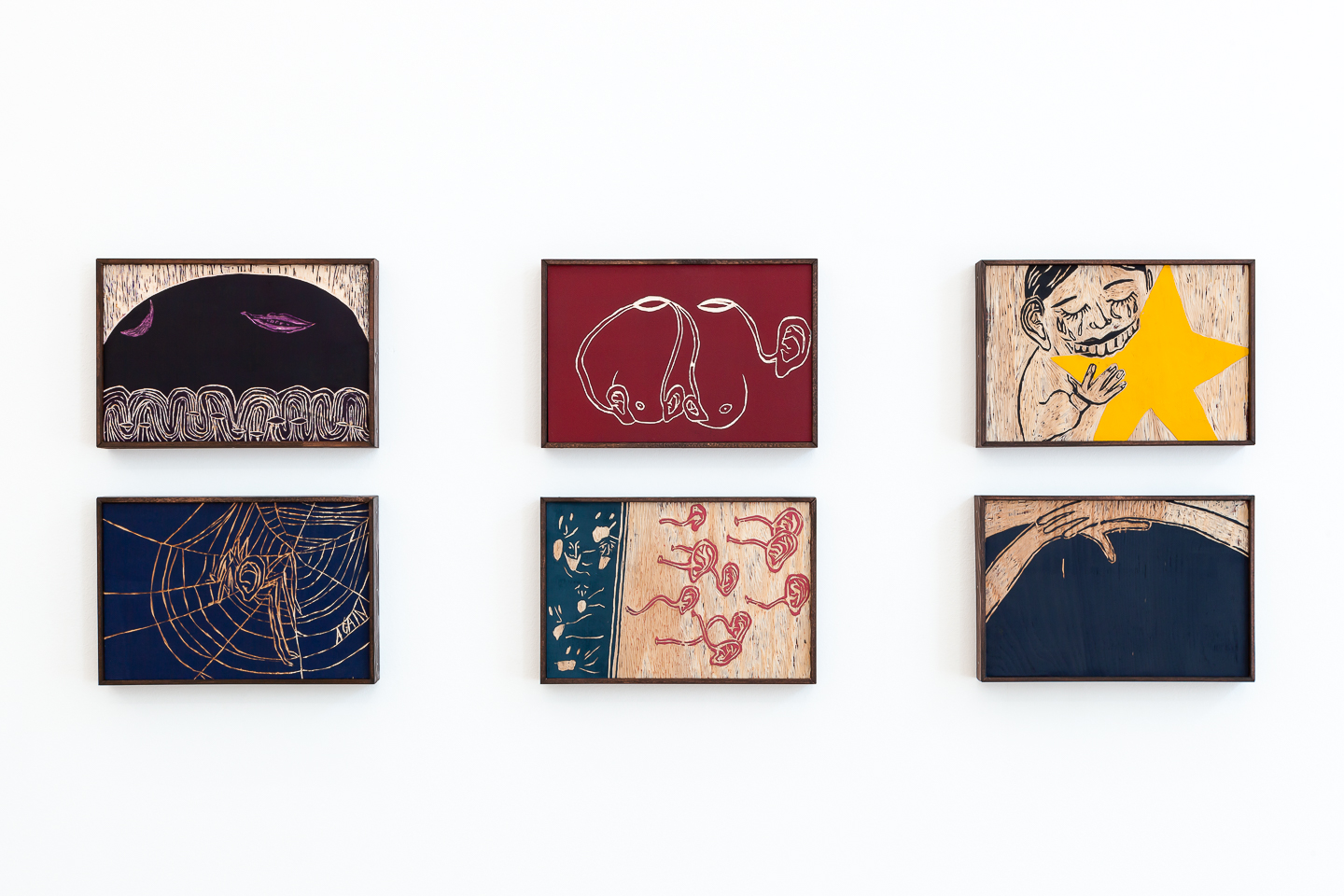
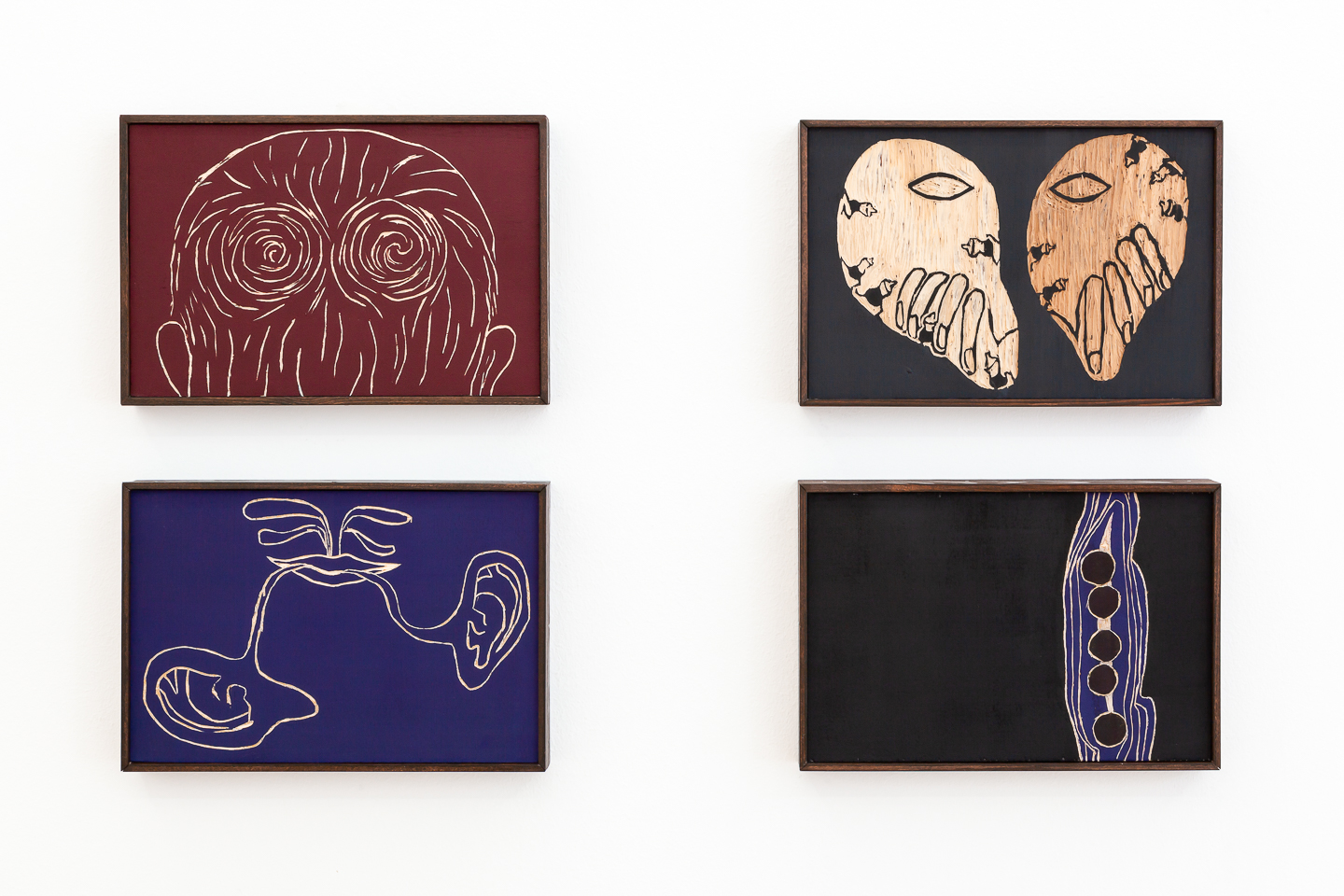
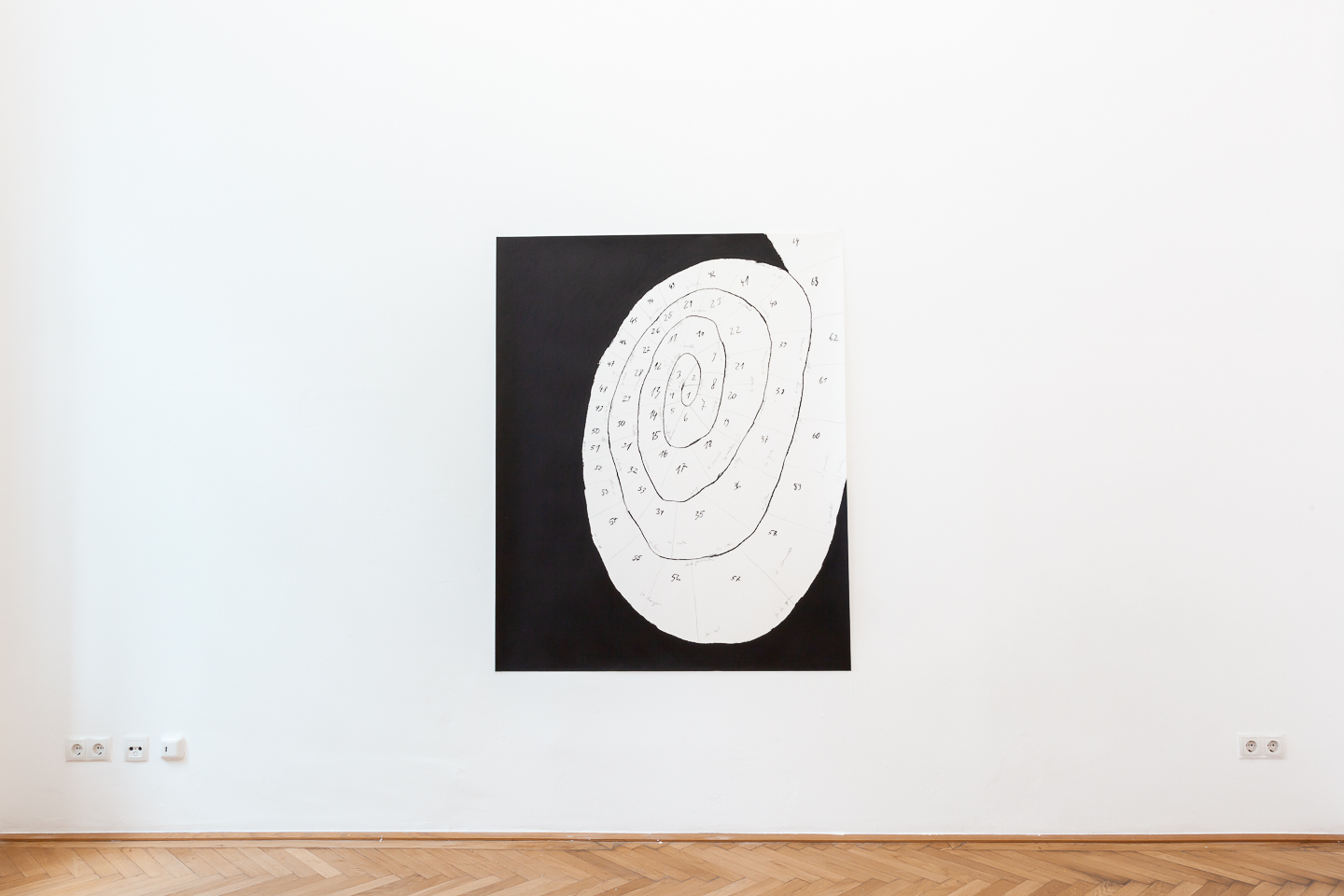
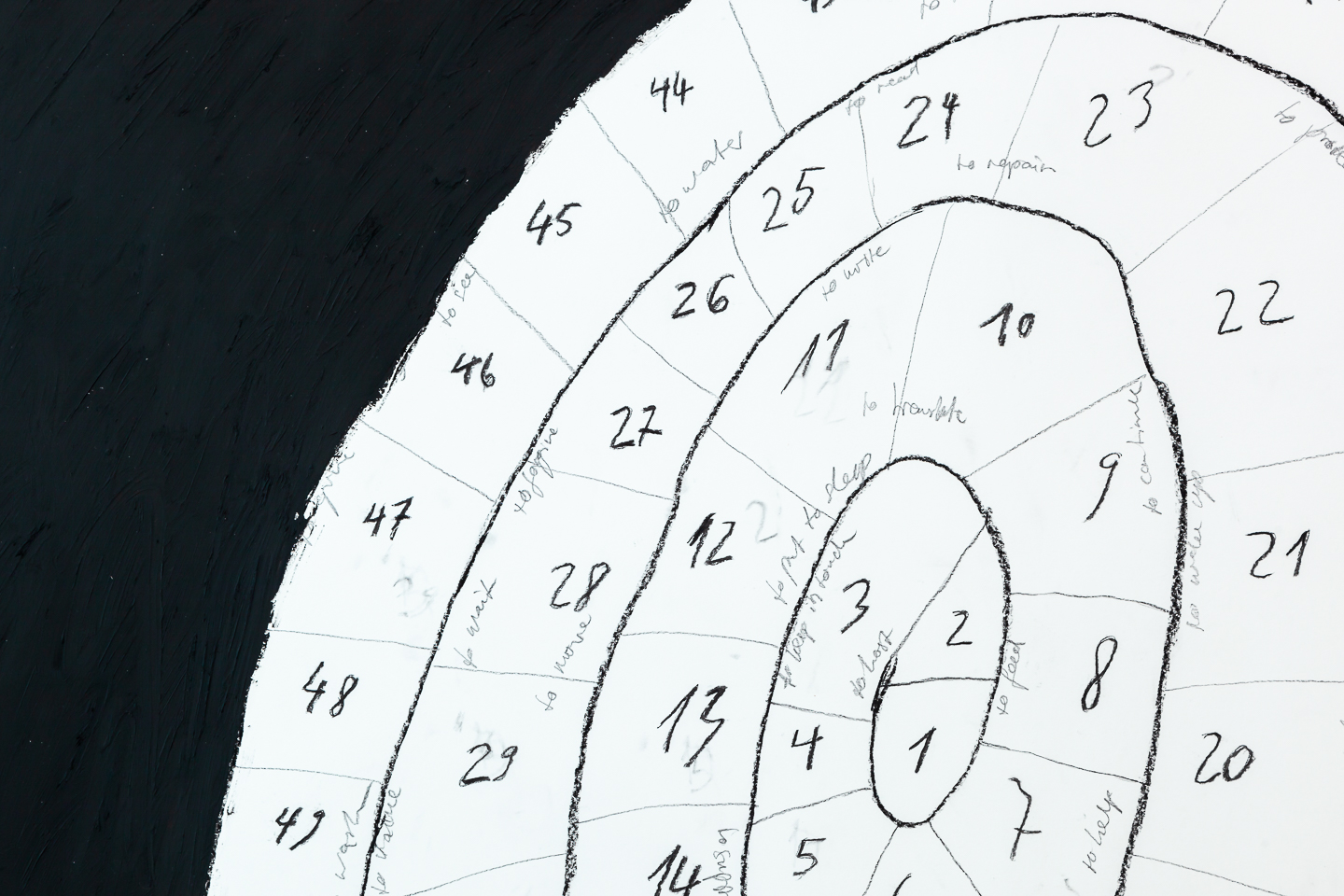
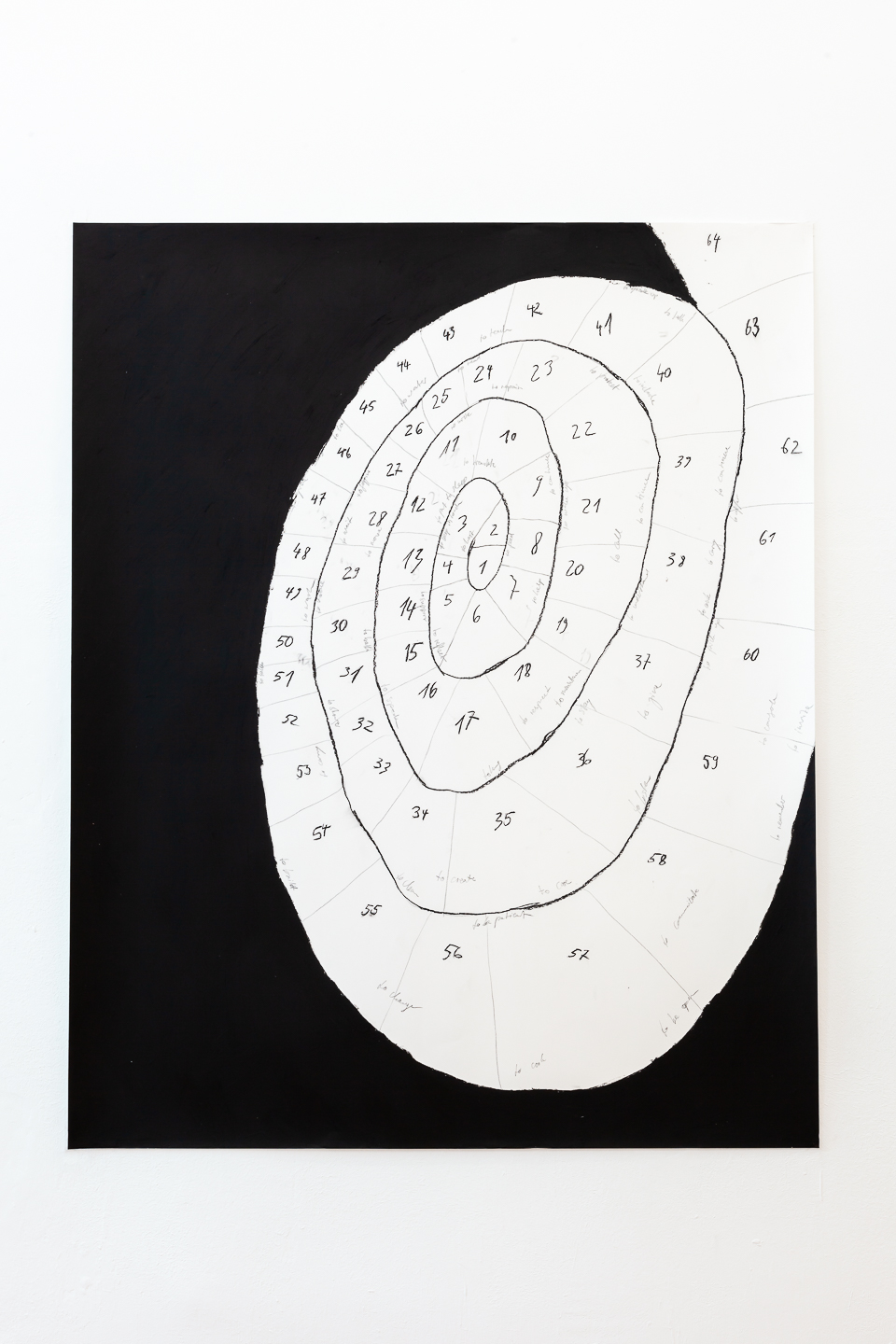
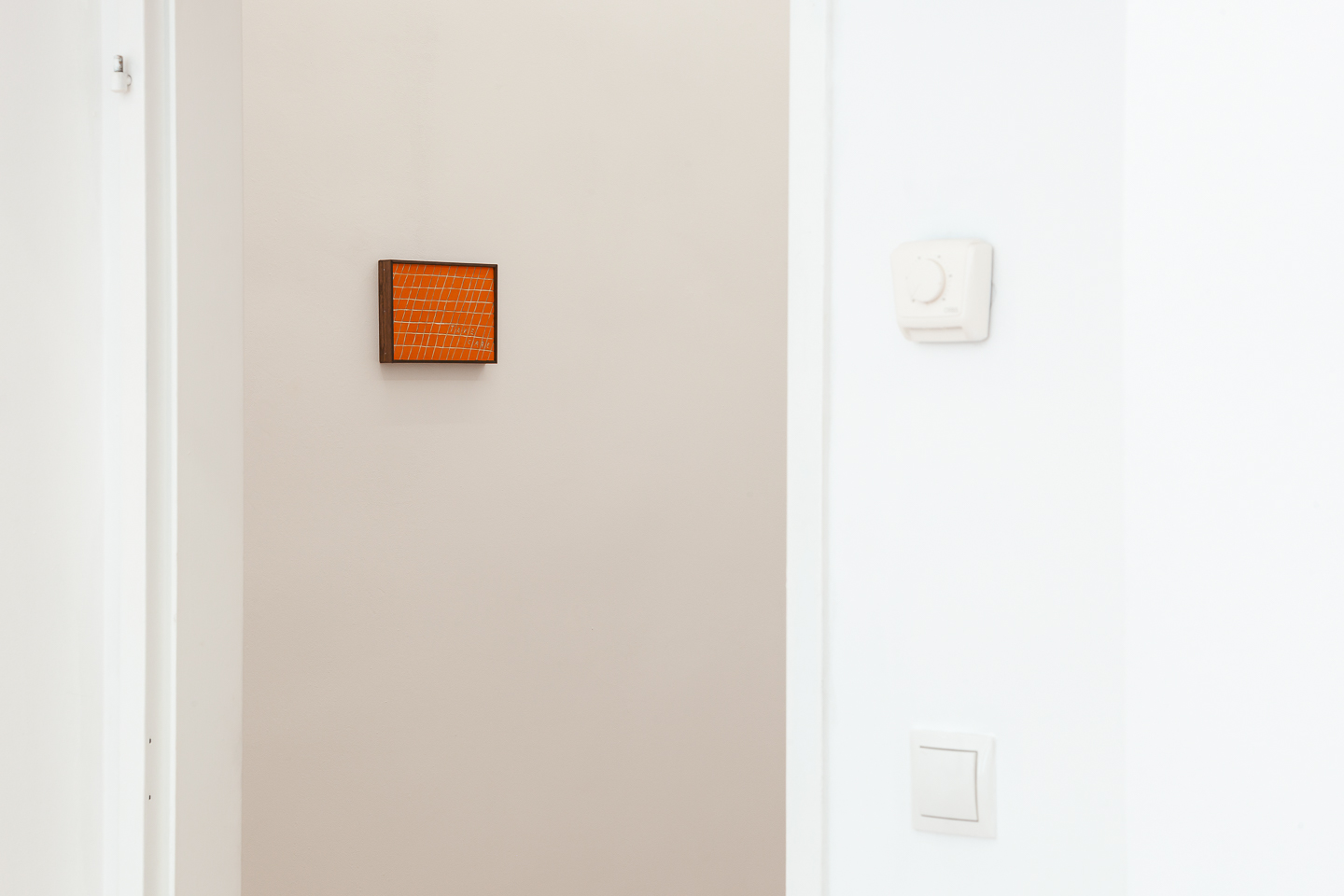
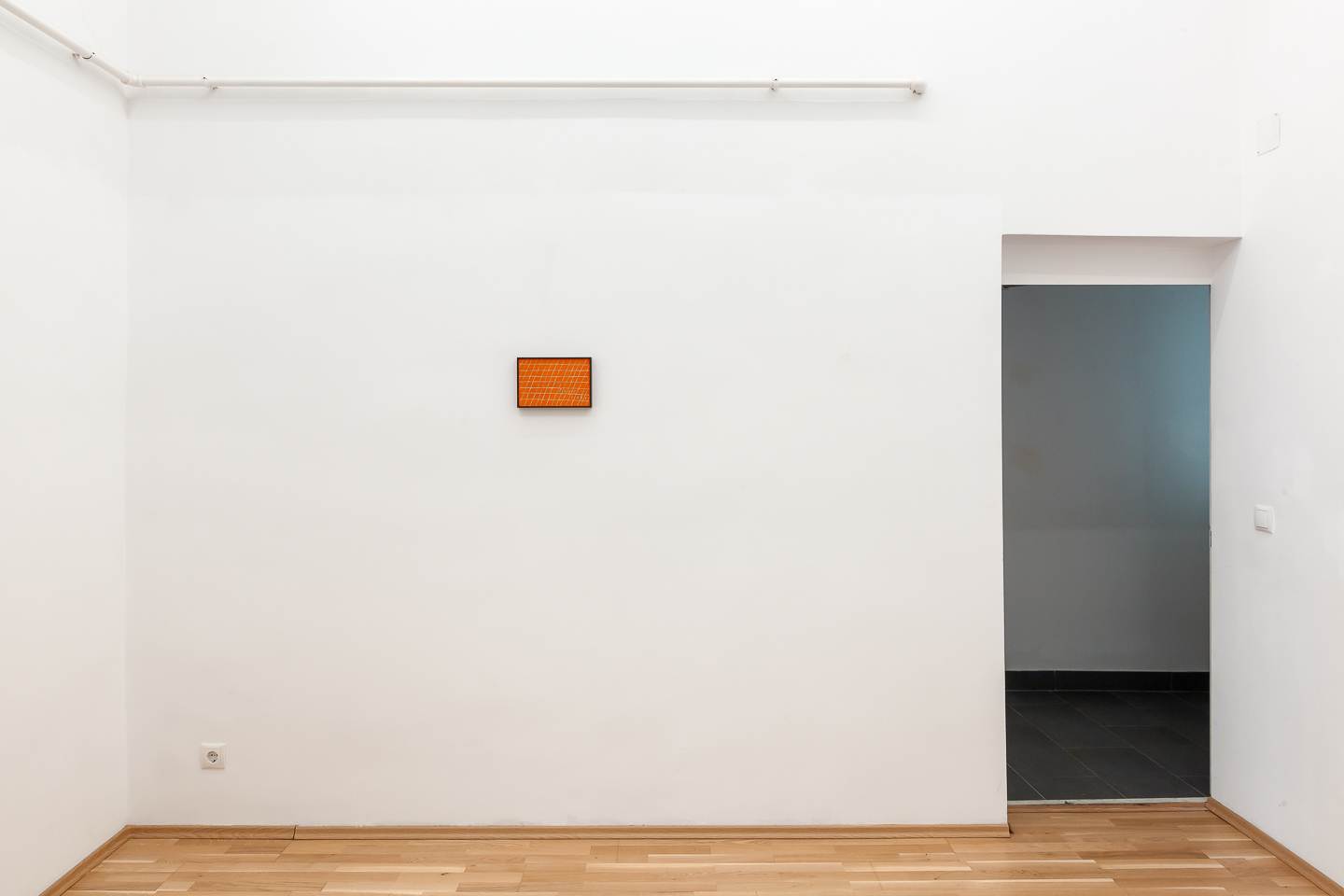
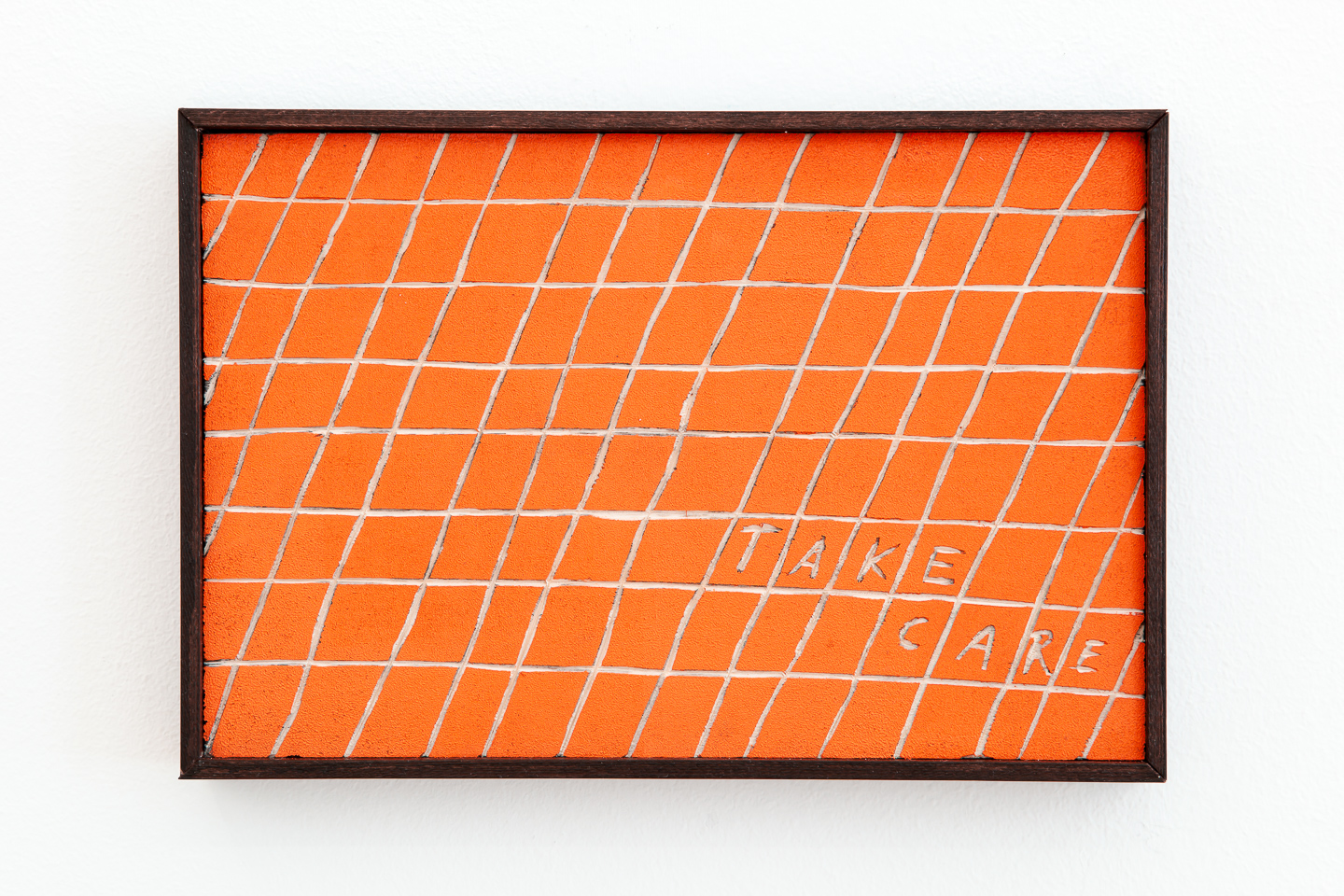
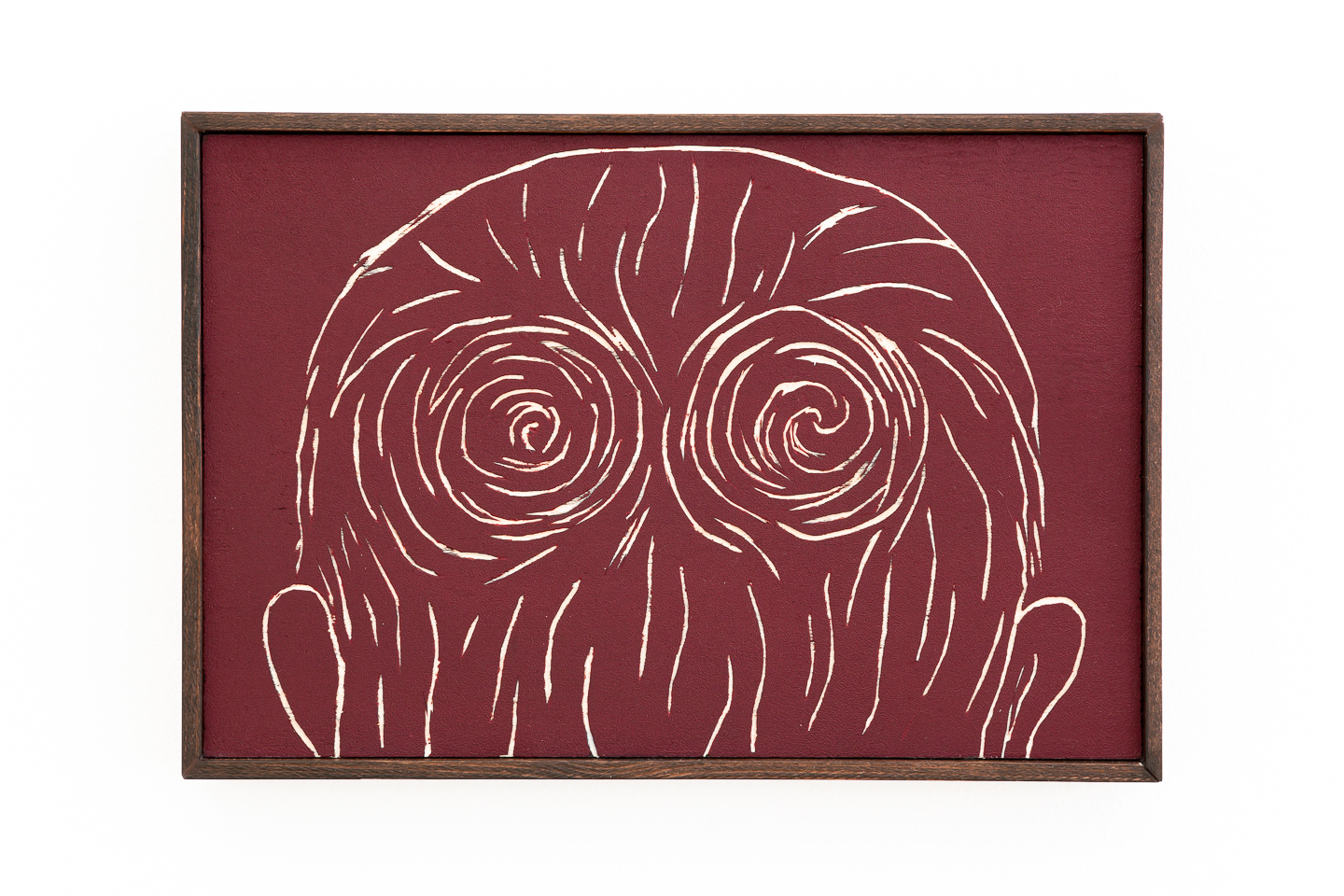
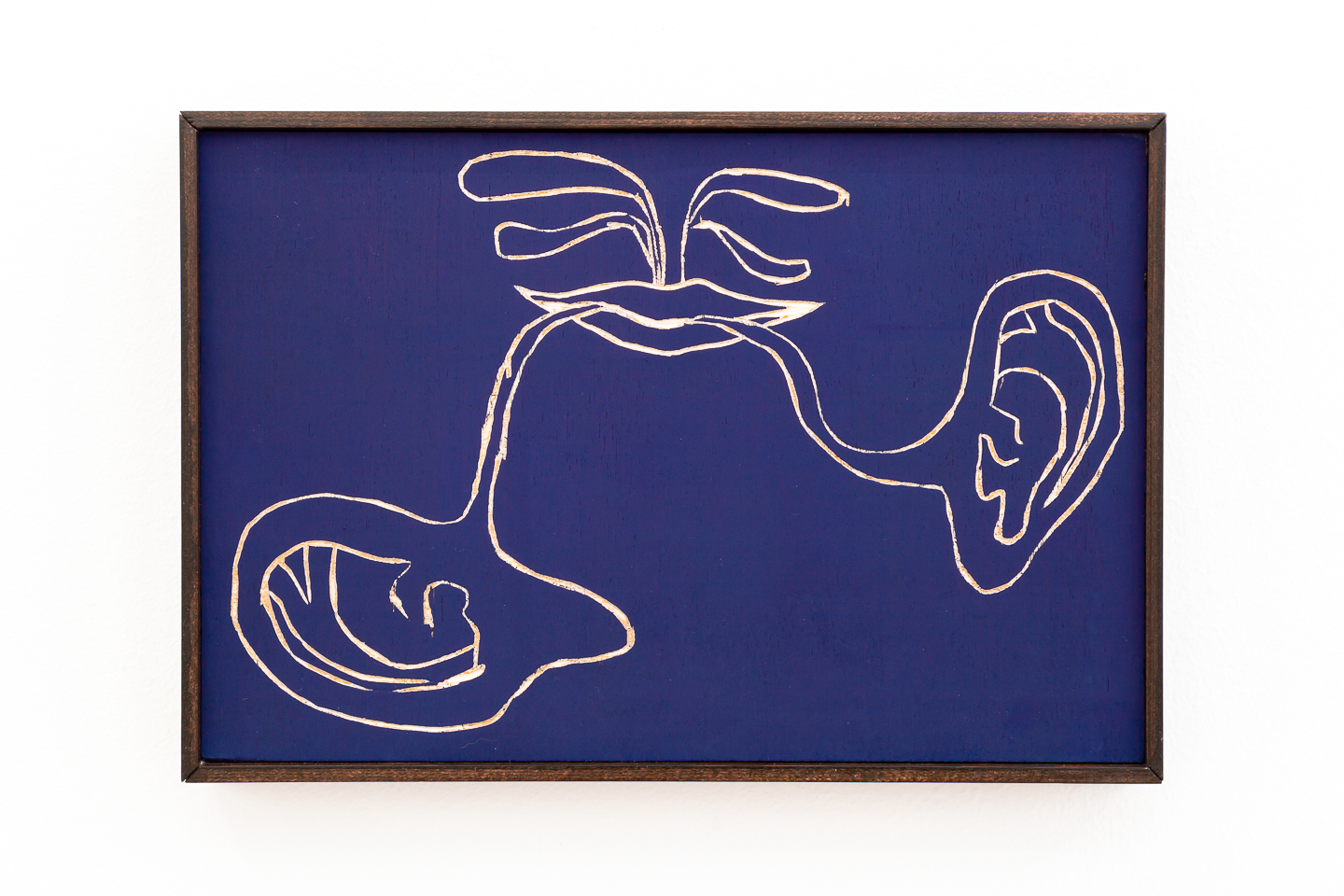
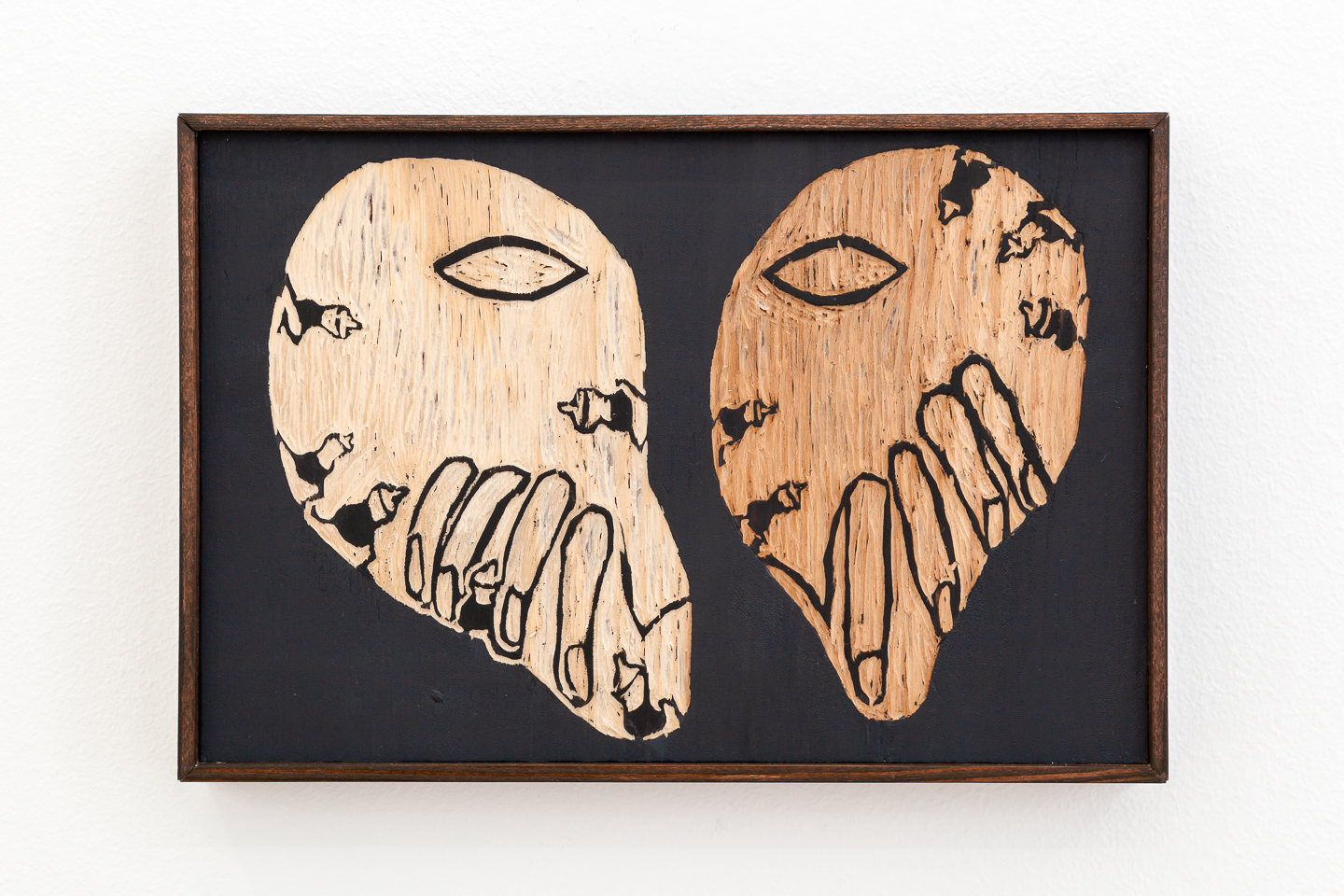
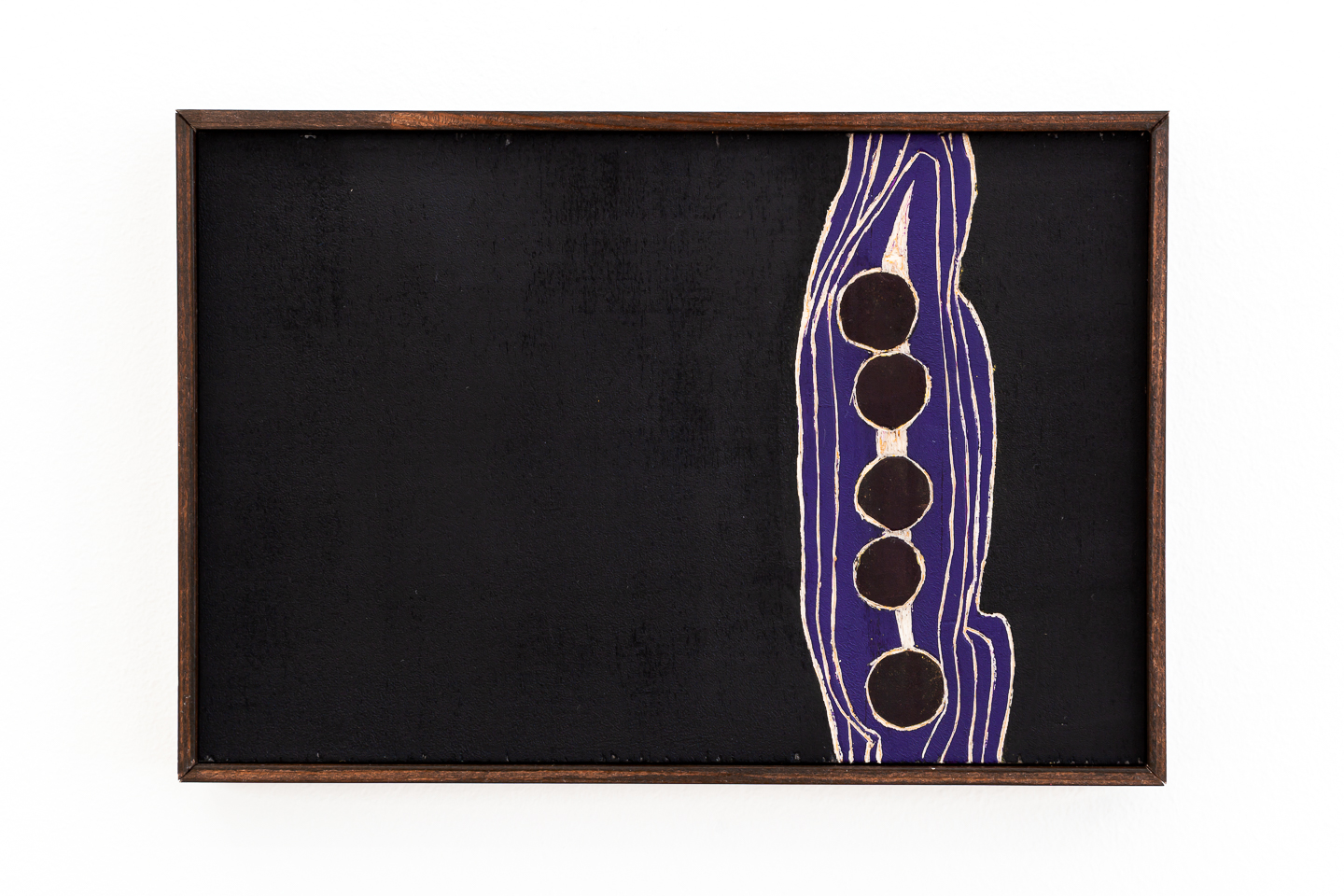
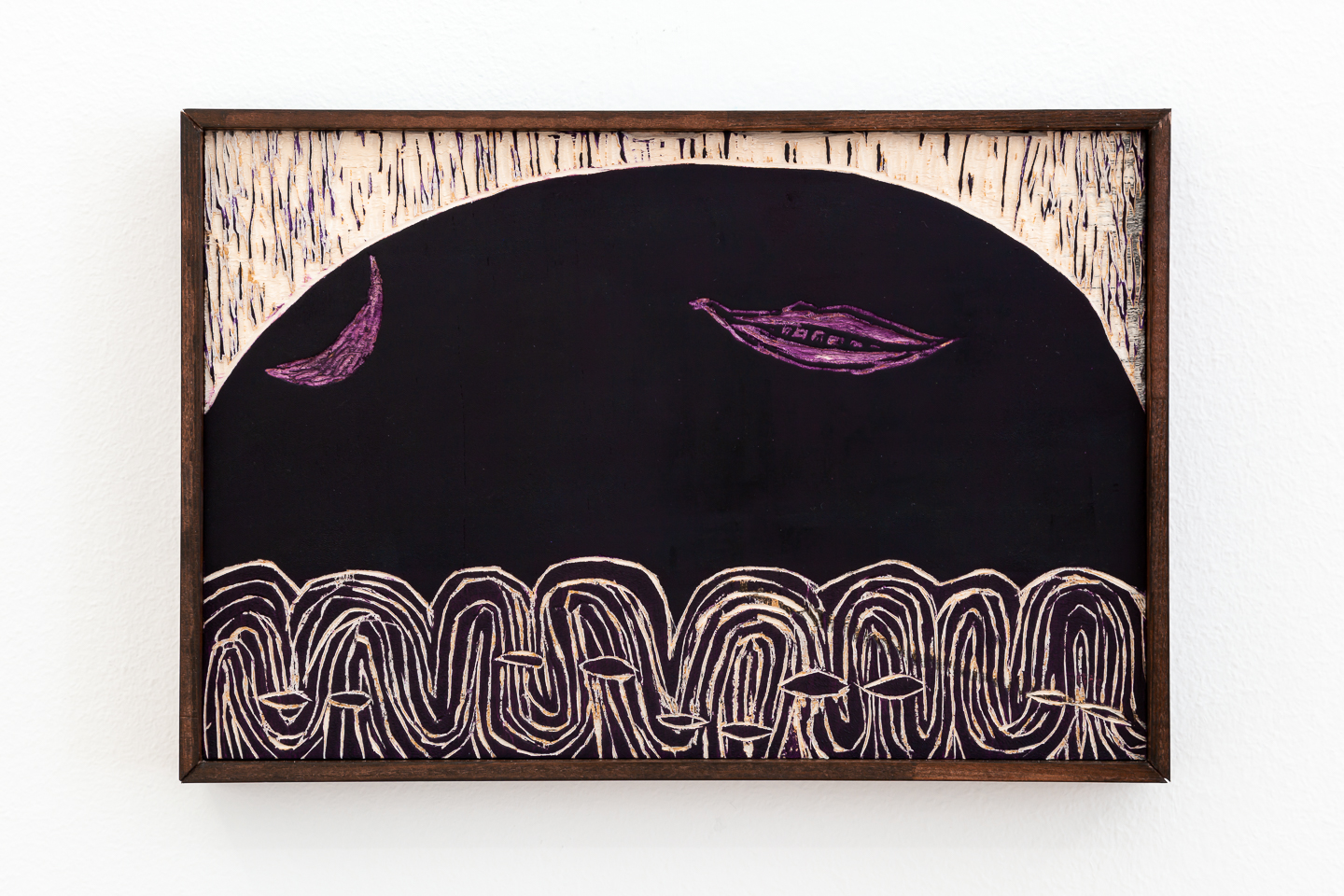
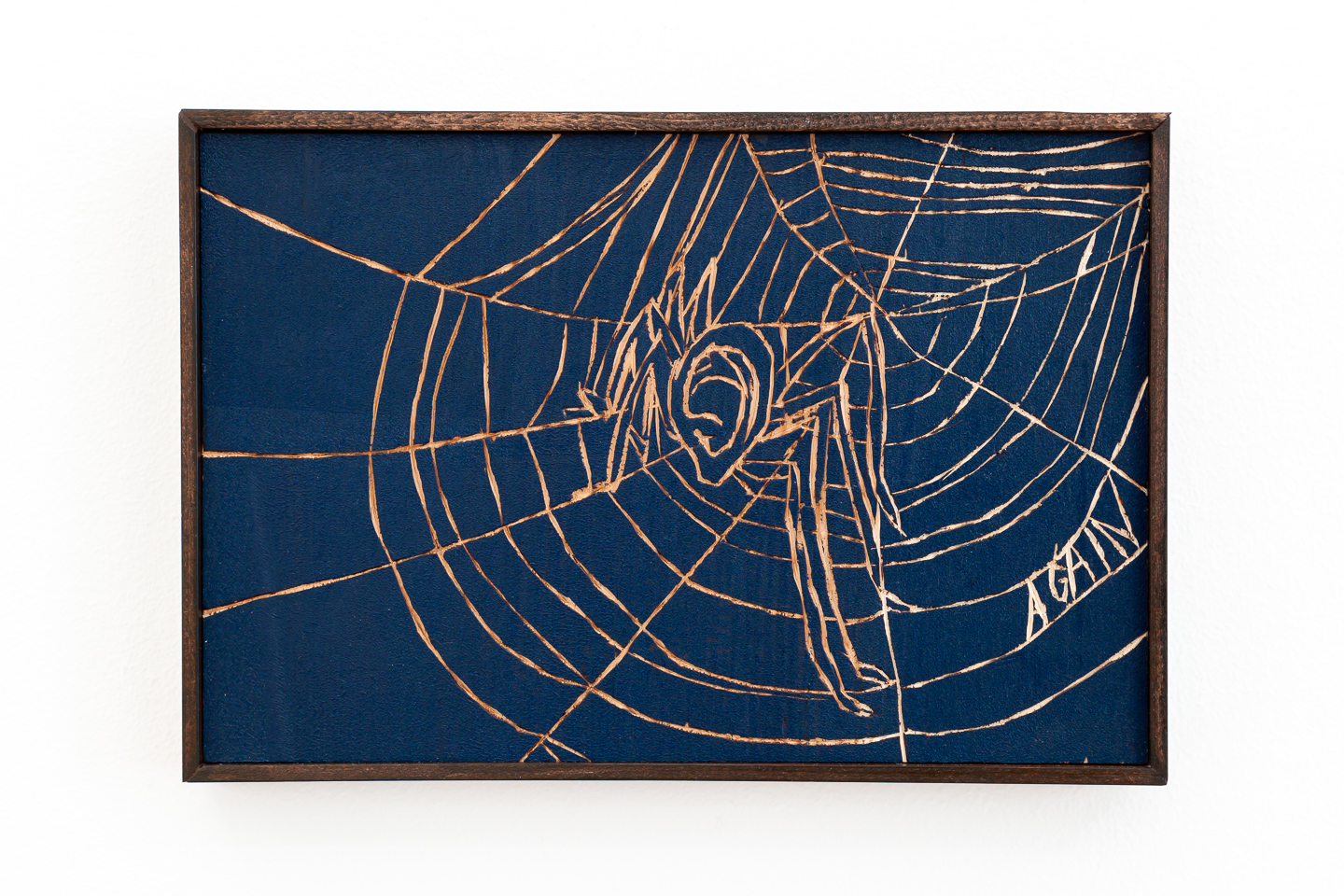
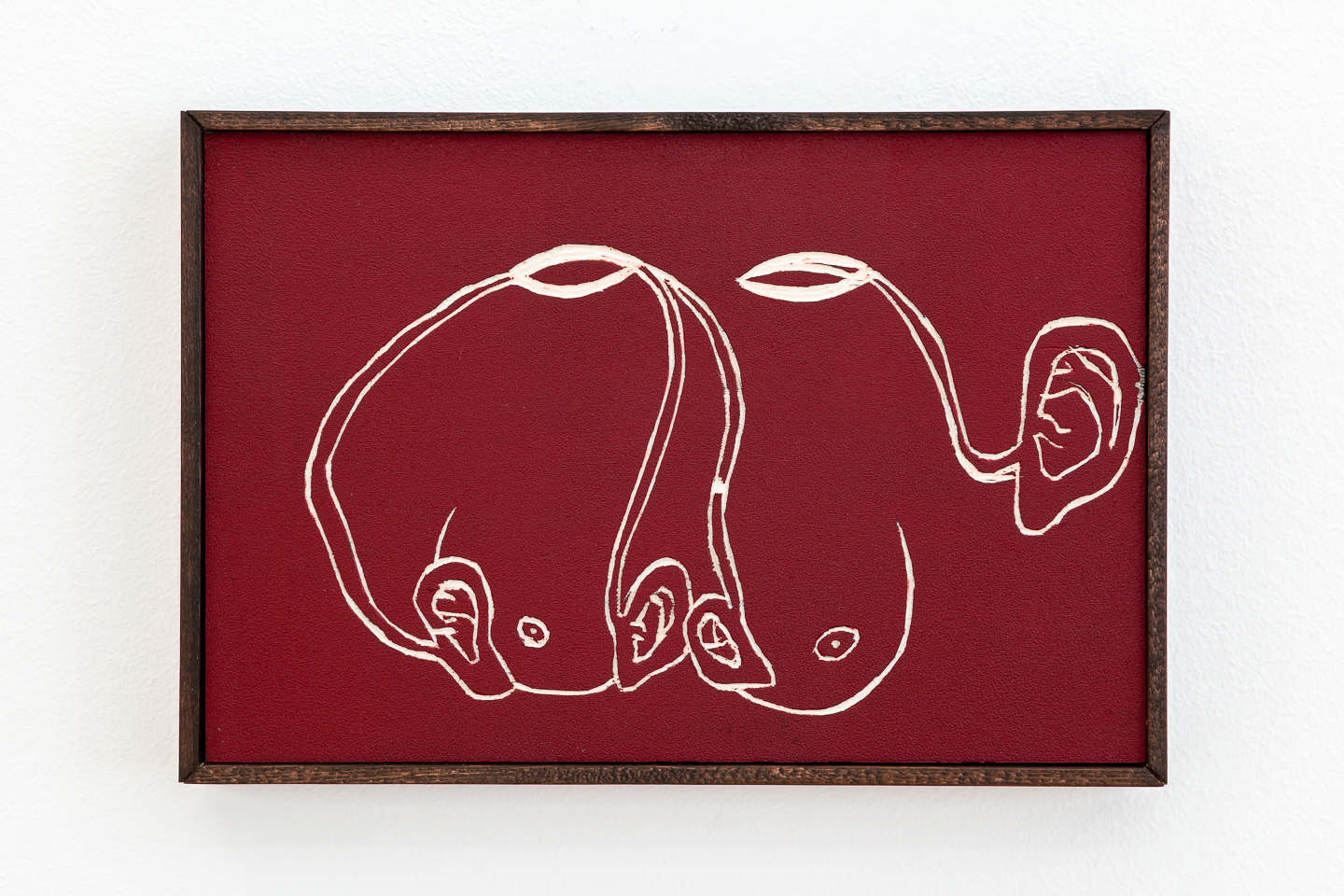
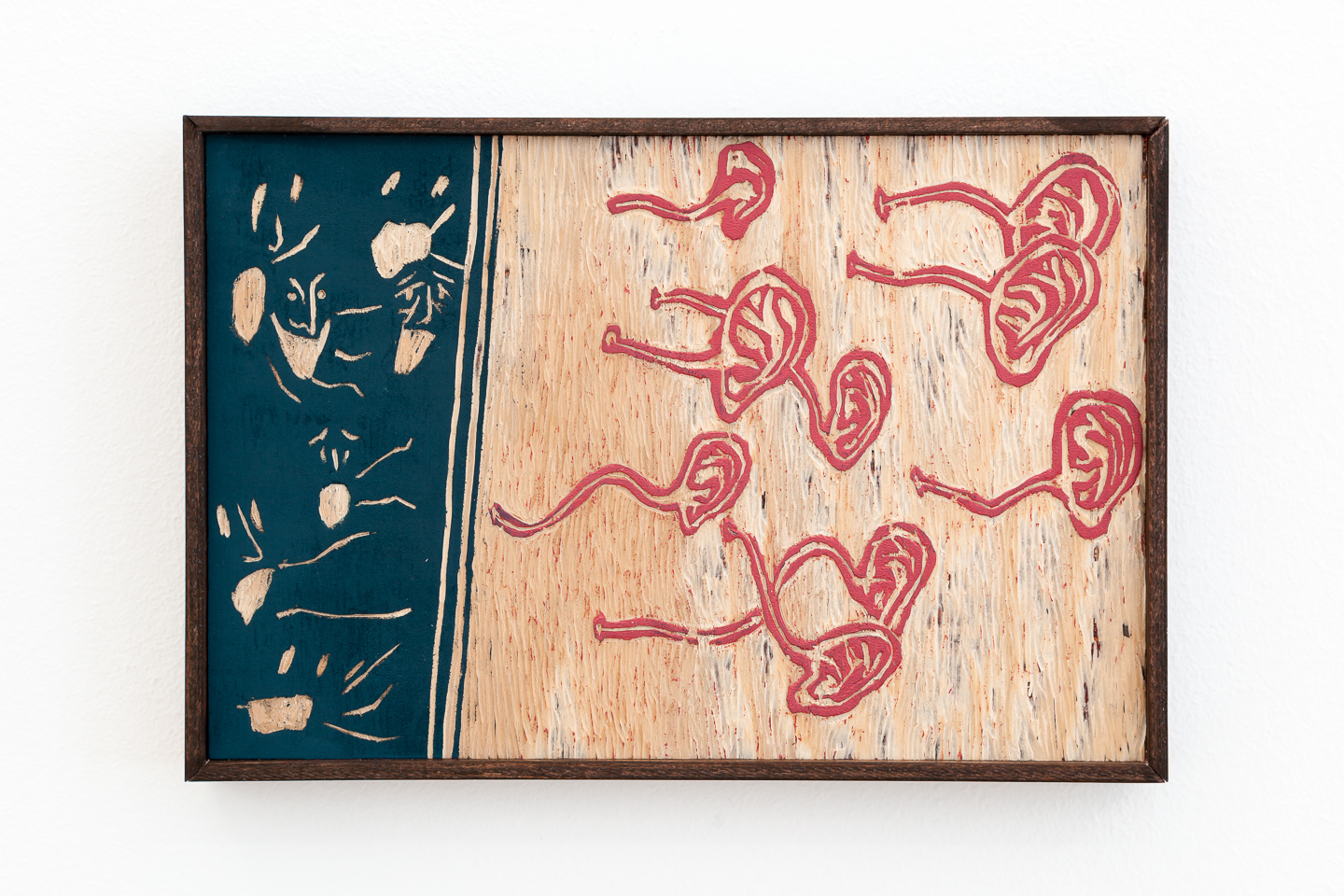
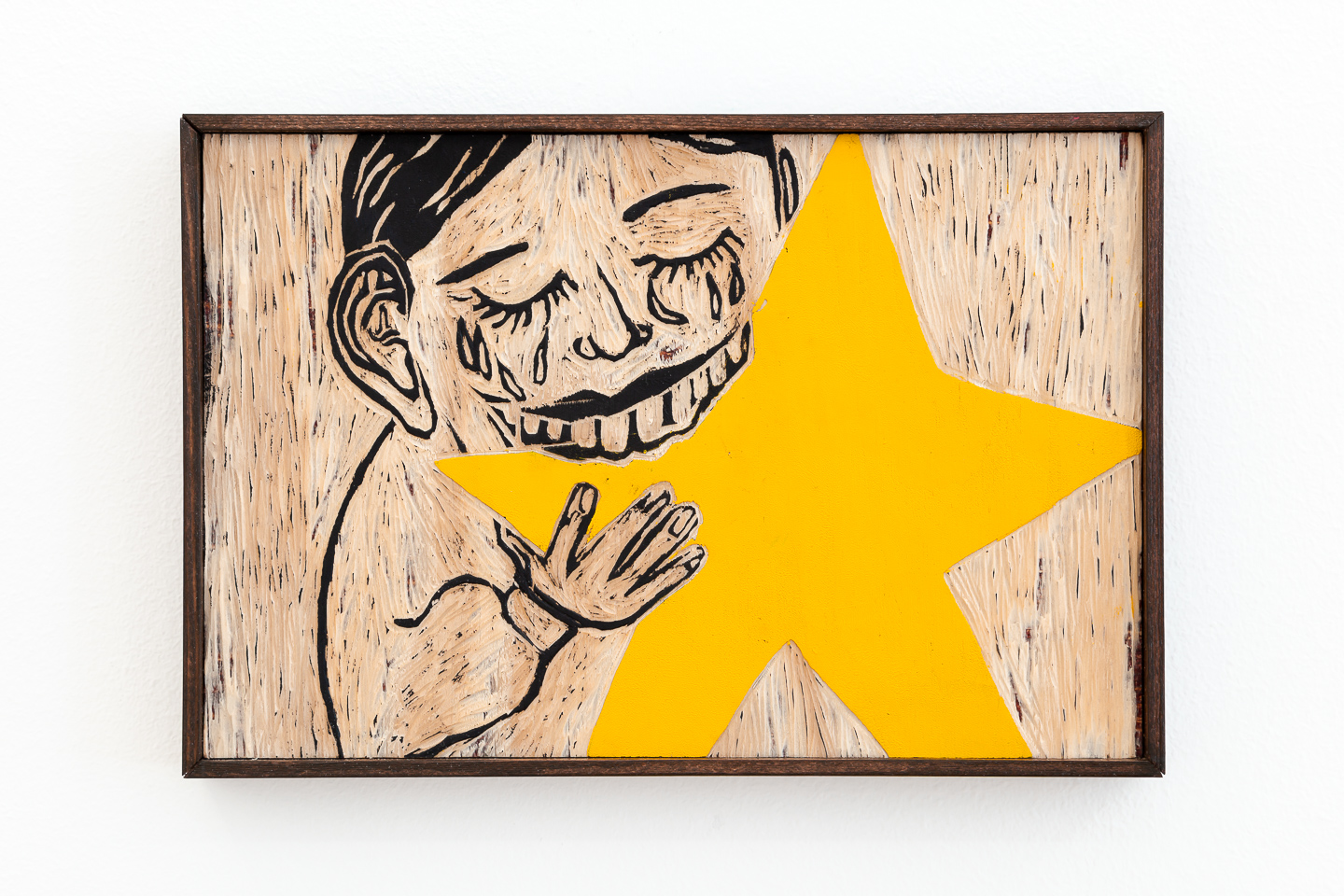
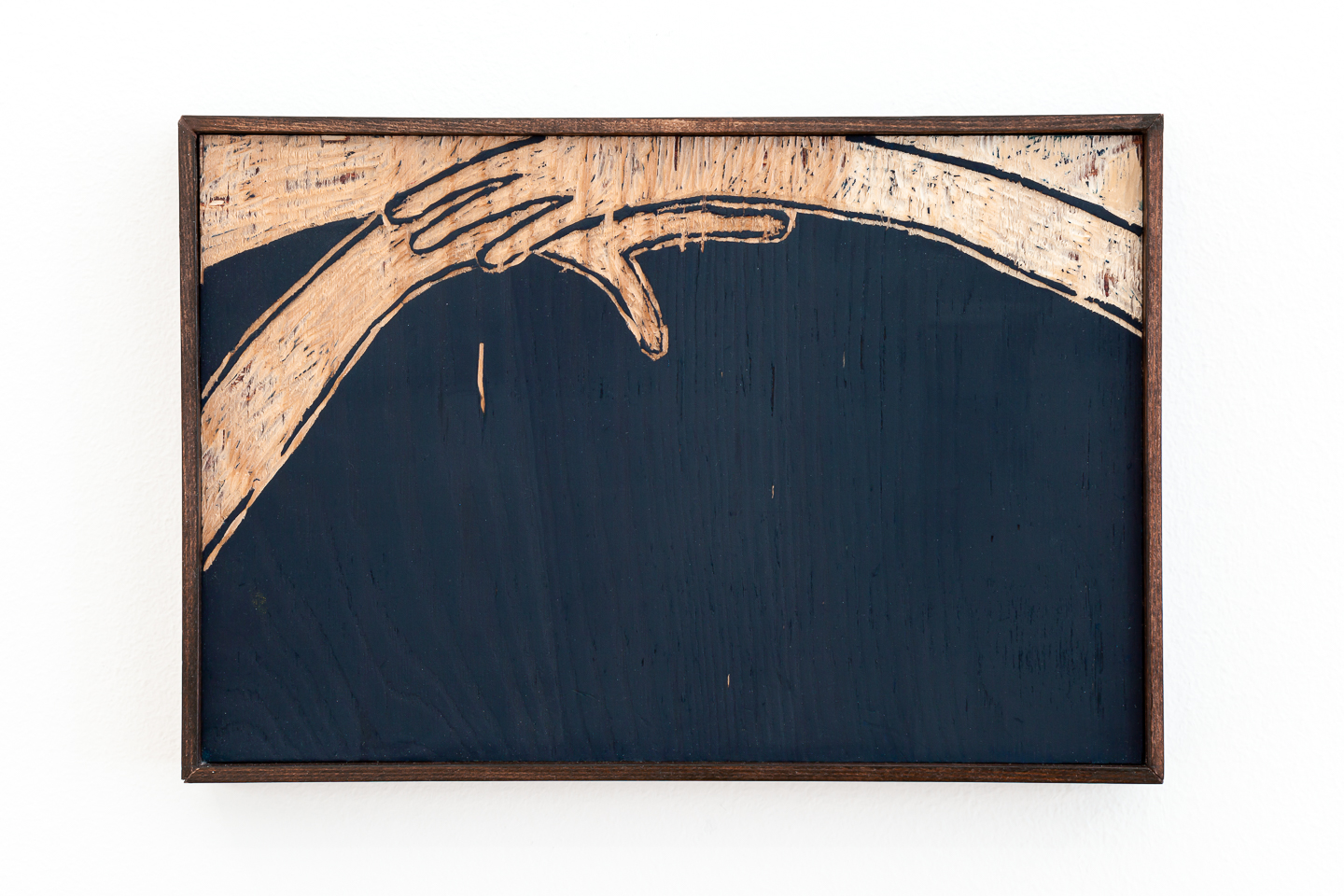
Info
Images by Flavio Palasciano
Location
house of spouse
Reinprechtsdorfer Straße 48

